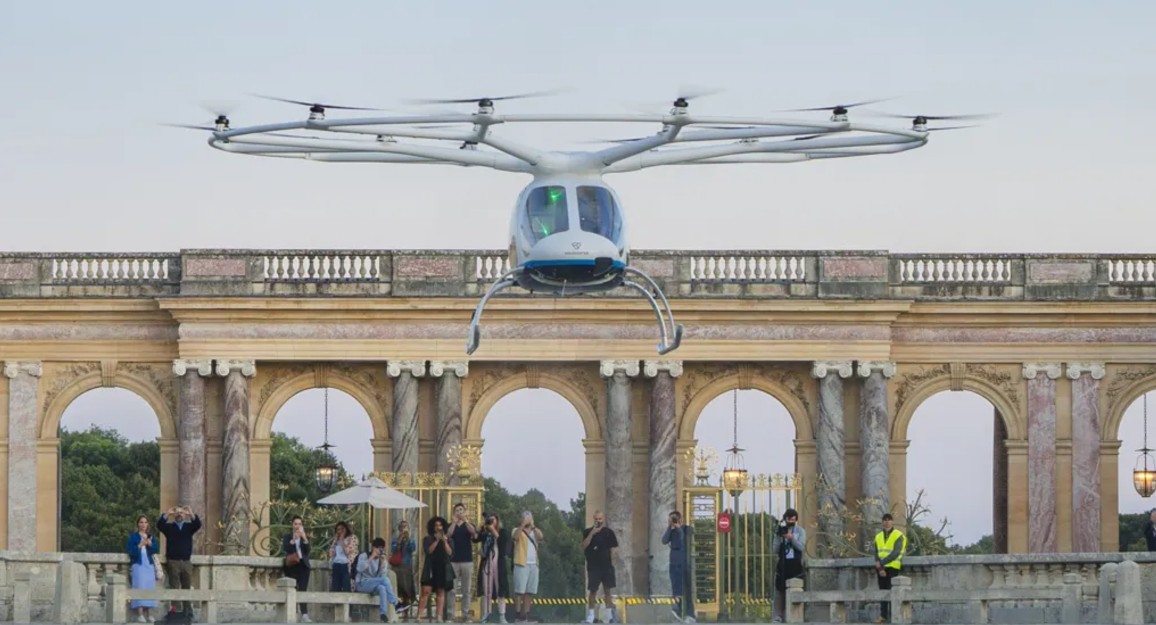Kathmandu: At this year’s Paris Olympics, the electric flying taxi service, promised by Germany’s Volocopter, was meant to be a highlight but ended up as just a demonstration, with no passenger flights. Volocopter, which had hoped to raise €100 million from the German government, now faces a serious financial crisis and is negotiating with China’s Geely for an 85% stake in exchange for $95 million. This deal could move manufacturing to China.
Volocopter is part of a global push to develop electric vertical take-off and landing (eVTOL) aircraft, which offer the flexibility of helicopters without the high cost and noise. However, the industry has struggled with high development costs and regulatory hurdles, causing several companies to face financial setbacks.
One of the most notable casualties is Lilium, a German company that developed a radical eVTOL design using 30 tilting electric jets. Despite securing 780 orders, the company ran out of funding after failing to secure a €100 million loan. In November, Lilium entered insolvency proceedings and its shares were delisted from the Nasdaq.
Meanwhile, Vertical Aerospace, a British eVTOL company, has also faced challenges. Despite successfully completing test flights, the company encountered a major setback when Rolls-Royce withdrew from supplying motors. Vertical recently reached a rescue deal with its largest creditor, Mudrick Capital, which will take a 70% stake in the company in exchange for a $50 million investment and restructuring of $130 million in debt.
On a more positive note, Airbus’ CityAirbus NextGen project remains on track, with financial backing and strong engineering expertise. Other well-funded start-ups, such as Joby and Archer in the US, also show promise, but the key challenge remains whether these aircraft can find a profitable market once in production.
Source: BBC
